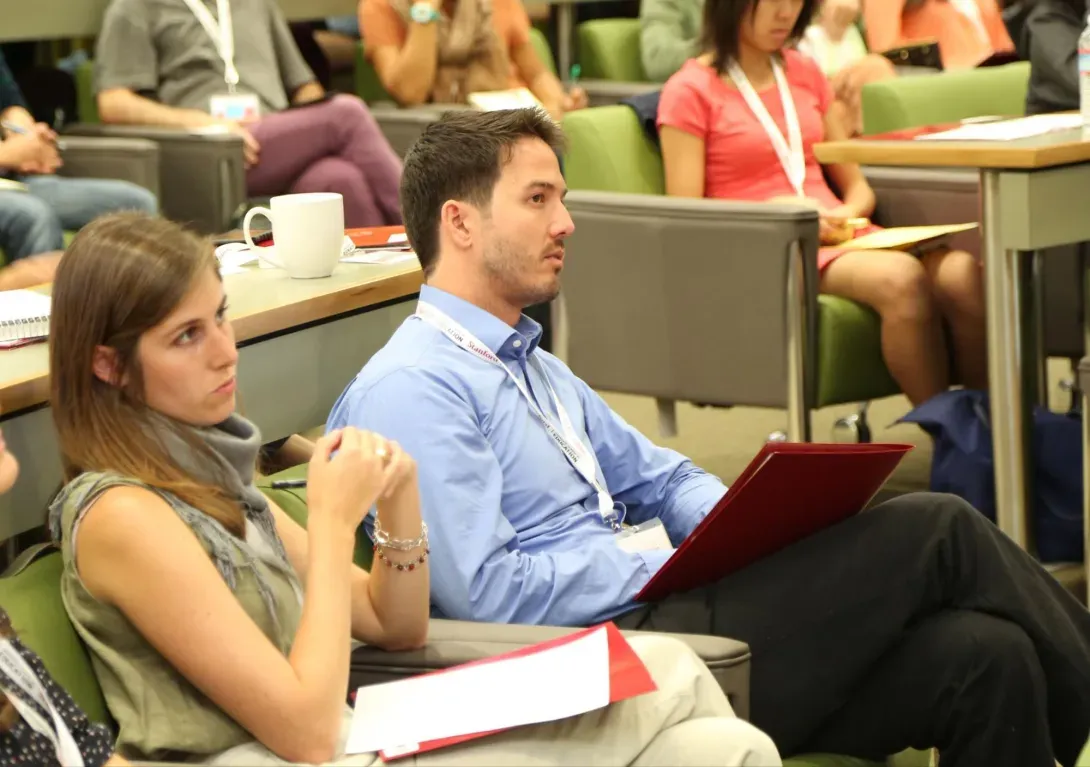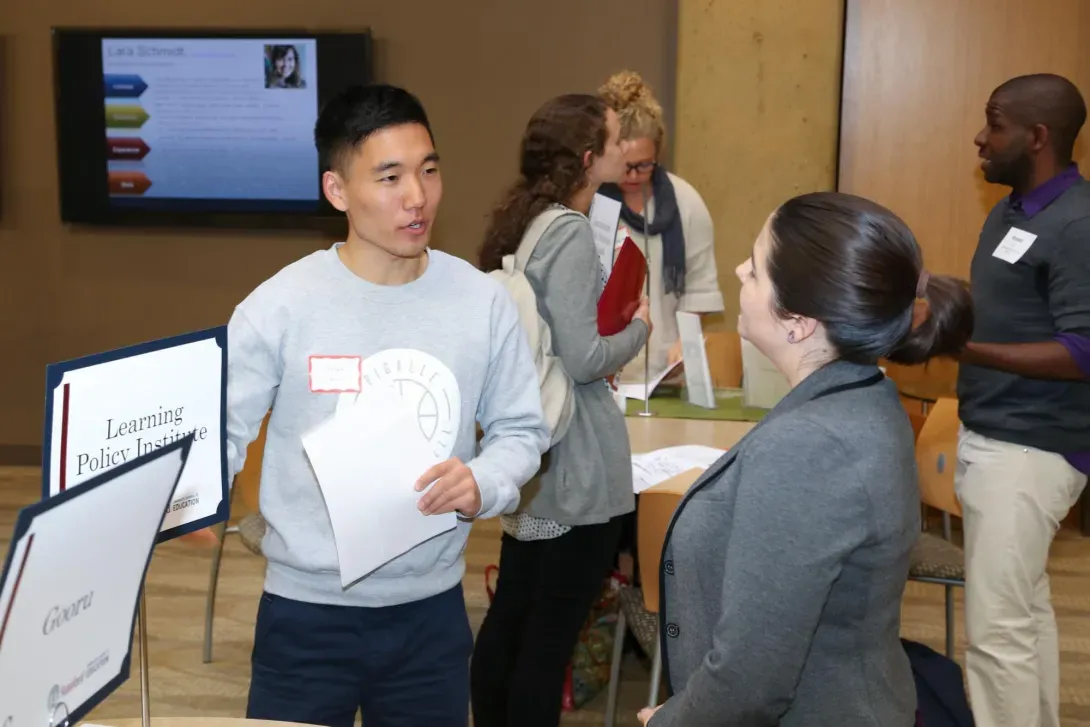Jobs & Internships
Stanford uses Handshake, a career platform designed to connect college students and graduates with employers for internships and jobs. Students and alumni can search for jobs, experiential learning opportunities and more. Employers can also search for candidates and post opportunities.
Connect with Handshake
Find jobs and internship postings, event info, and coaching schedules.
The GSE is sunsetting the Symplicity platform and no new positions will be posted here. However, it is still accessible through summer 2026. Login here.
Graduate Student Employment
For guidance about student employment at the GSE, please contact gsestudentemployment@stanford.edu or complete this inquiry form.
Faculty and Staff may find additional information about assistantship hiring here.

Stanford Graduate Workers Union
Stanford University and the Stanford Graduate Workers Union (UE-SGWU) have a collective bargaining agreement effective November 22, 2024 through August 31, 2027. UE-SGWU is affiliated with the United Electrical, Radio and Machine Workers of America (UE).
To learn more about the collective bargaining agreement and who is included in the union, please consult Stanford Graduate Workers Union, United Electrical Local 1043
Experiential Learning & Internships
Who does experiential learning?
Master of science students in the Education Data Science (EDS) program and the Learning Design and Technology (LDT) program, and Master of arts students in the Policy, Organization, and Leadership Studies (POLS) program complete required experiential learning as an integral part of their program. Students in our joint master’s programs–MA/MBA, MA/MPP, and MA/JD–may integrate experiential learning and internships in keeping with their academic interests and professional goals.

Required experiential learning
Internship | 6-10 hours/week* | One quarter | |
Internship | 6-10 hours/week** | Two quarters | |
Field Project | 150 hours total | Two quarters (winter & spring) |
*may work up to 40 hours/week during the summer quarter
**may work up to 20 hours/week during the summer quarter
Optional experiential learning
Joint MA/MBA in education and business | duration and format varies |
Joint MA/MPP in education and public policy | duration and format varies |
Joint MA/JD in education and law | duration and format varies |
Experiential learning helps students to:
- refine career goals
- broaden and enhance marketable skills
- connect academic learning to real-world experience
- learn about a sector, organization, or role while building a professional network
How do students find experiential learning opportunities?
Students find experiential learning opportunities through Handshake, through other job posting sites, and through direct contact with employers. In some cases, program directors help students connect with experiential learning hosts.
What makes for a quality experiential learning opportunity?
Ideal experiential learning helps the student build professional skills while applying classroom concepts to projects that are “mission critical” to the host organization. We recommend no more than 10 hours per week, with student and manager meeting regularly. Experiential Learning can be paid and/or for academic credit.
For more information on what defines an internship, please visit the NACE internship guide.
International students
International students face some extra requirements for holding internships in the U.S. The Curricular Practical Training (CPT) authorization applies to students in programs with a required internship. Optional Practical Training (OPT) is an off-campus employment benefit for employment in the major field of study. To learn more about CPT and OPT, visit the Bechtel International Center website.
Internship process (EDS & LDT)* **
- In consultation with their program director, a student may enroll in EDUC 215 to earn academic credit.
- Student finds experiential learning opportunity.
- Student and manager complete online internship agreement.
- Student participates in experiential learning with support and guidance from the program director and Academic Affairs staff.
- Student completes a self-evaluation survey, and the manager provides feedback on student performance.
- Student may repeat an internship for an additional quarter with manager approval
* For MA/MBA students, please consult with MA/MBA director Geoff Cox (gcox@stanford.edu) if you are interested in pursuing an internship for academic credit.
** For all other graduate students, including PhDs, contact Emi Kuboyama (kuboyama@stanford.edu) if you are interested in pursuing an internship.
Internship Agreements
Internship Agreements help to ensure that students and their hosting organization are on the same page in terms of understanding the time, resources, and outcome of expectations for your internship.

